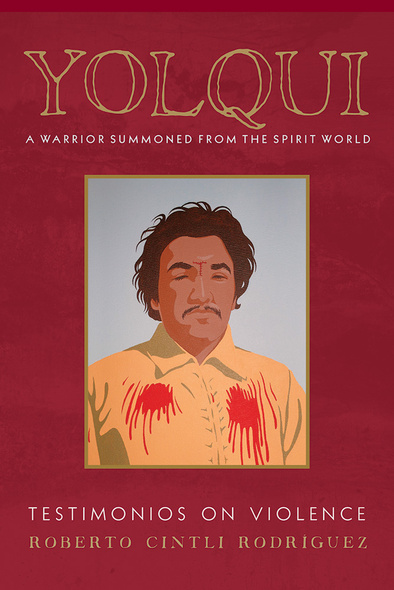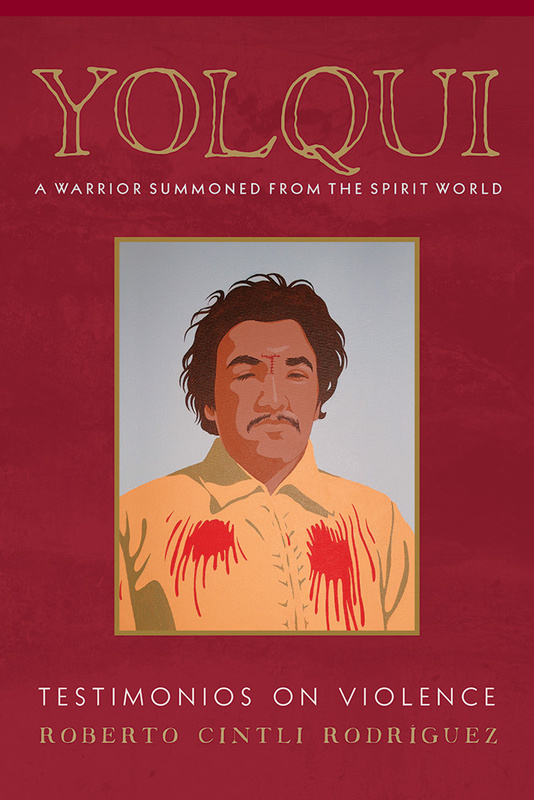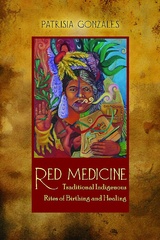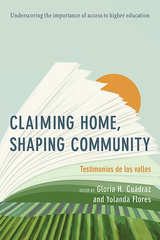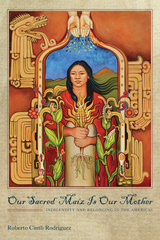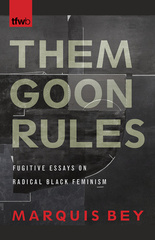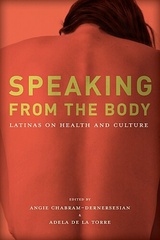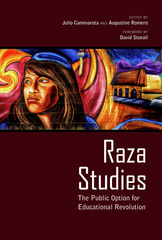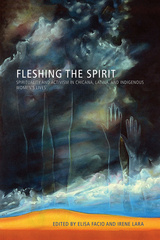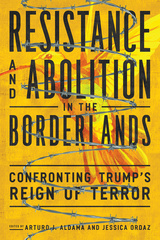Yolqui, a Warrior Summoned from the Spirit World
Testimonios on Violence
By Roberto Cintli Rodríguez; Foreword by Patrisia Gonzales
The University of Arizona Press
In Nahuatl yolqui is the idea of a warrior brought back from the dead. For author and activist Roberto Cintli Rodríquez, it describes his own experience one night in March 1979 after a brutal beating at the hands of L.A. sheriffs.
Framed by Rodríguez’s personal testimony of police violence, this book offers a historia profunda of the culture of extralegal violence against Red-Black-Brown communities in the United States. In addition to Rodríguez’s story, this book includes several short essays from victims and survivors that bring together personal accounts of police brutality and state-sponsored violence. This wide-ranging work touches on historical and current events, including the Watts rebellion, the Zoot Suit Riots, Operation Streamline, Standing Rock, and much more.
From the eyewitness accounts of Bartolomé de las Casas to the protestors and allies at Standing Rock, this book makes evident the links between colonial violence against Red-Black-Brown bodies to police violence in our communities today. Grounded in the stories of the lives of victims and survivors of police violence, Yolqui, a Warrior Summoned from the Spirit World illuminates the physical, spiritual, and epistemic depths and consequences of racialized dehumanization.
Rodríguez offers us an urgent, poignant, and personal call to end violence and the philosophies that permit such violence to flourish. Like the Nahuatl yolqui, this book is intended as a means of healing, offering a footprint going back to the origins of violence, and, more important, a way forward.
With contributions by Raúl Alcaraz-Ochoa, Citalli Álvarez, Tanya Alvarez, Rebekah Barber, Juvenal Caporale, David Cid, Arianna Martinez Reyna, Carlos Montes, Travis Morales, Simon Moya Smith, Cesar Noriega, Kimberly Phillips, Christian Ramirez, Michelle Rascon Canales, Carolyn Torres, Jerry Tello, Tara Trudell, and Laurie Valdez.
Framed by Rodríguez’s personal testimony of police violence, this book offers a historia profunda of the culture of extralegal violence against Red-Black-Brown communities in the United States. In addition to Rodríguez’s story, this book includes several short essays from victims and survivors that bring together personal accounts of police brutality and state-sponsored violence. This wide-ranging work touches on historical and current events, including the Watts rebellion, the Zoot Suit Riots, Operation Streamline, Standing Rock, and much more.
From the eyewitness accounts of Bartolomé de las Casas to the protestors and allies at Standing Rock, this book makes evident the links between colonial violence against Red-Black-Brown bodies to police violence in our communities today. Grounded in the stories of the lives of victims and survivors of police violence, Yolqui, a Warrior Summoned from the Spirit World illuminates the physical, spiritual, and epistemic depths and consequences of racialized dehumanization.
Rodríguez offers us an urgent, poignant, and personal call to end violence and the philosophies that permit such violence to flourish. Like the Nahuatl yolqui, this book is intended as a means of healing, offering a footprint going back to the origins of violence, and, more important, a way forward.
With contributions by Raúl Alcaraz-Ochoa, Citalli Álvarez, Tanya Alvarez, Rebekah Barber, Juvenal Caporale, David Cid, Arianna Martinez Reyna, Carlos Montes, Travis Morales, Simon Moya Smith, Cesar Noriega, Kimberly Phillips, Christian Ramirez, Michelle Rascon Canales, Carolyn Torres, Jerry Tello, Tara Trudell, and Laurie Valdez.
Yolqui is at once a book of mourning and an ultimatum written against the great silencing, against misleading statistics, and against outright lies designed to keep centuries of genocide in place. This book was written for the white supremacist witching hour: an unholy ritual guided by racist doctrine, blood-drenched law, and police executions. This book is written against corruption and coverups, conquest and canon, the past five hundred years recurring every next day.’—Matt Sedillo, Public Intellectuals
‘With this memoir/testimonio, Rodriguez provides us with an overarching indictment and condemnation of the long histories of police violence through the eyes of someone who has experienced it and lived to tell about ‘the barbarity and savagery that is permitted under the color of law’. From the eyewitness accounts of Bartolome de las Casas to Standing Rock, this book makes evident the logics of racialized dehumanization that links colonial violence against Black and Brown bodies to police violence in our communities today. Grounded in the stories of the lives of other victims and survivors of police violence, Yolqui illuminates the physical, spiritual, and epistemic depths and consequences of dehumanization. A must read!’—Roberto D. Hernández, author of Coloniality of the U-S///Mexico: Power, Violence, and the Decolonial Imperative
‘This book is important in its power, heartbreak, and call for continued revolution and resistance!’—Natalia Deeb-Sossa, editor of Community-Based Participatory Research: Testimonios from Chicana/o Studies
‘Through transformative personal narratives, stories, and poems the authors—all victims of systemic extralegal violence at the hands of law enforcement—remind us of how our communities of color have been affected since the inception of the U.S. by a culture of political violence, torture and trauma. This book is important in its power, heartbreak, and call for continued revolution and resistance!’—Natalia Deeb Sossa, editor of Community-Based Participatory Research: Testimonios from Chicana/o Studies
‘Rodriquez illuminates the dehumanizing effects of law enforcement violence for communities of color in the U.S. by effectively drawing from his memoir of a near fatal and brutal encounter with Los Angeles Sheriff Deputies during the height of the Chicana/Chicano Movement. The memoir illuminates the pandemic of violence in the US as a continuing tactic in the colonization of people of color by dismantling the mind, body and spirit of Black, Brown and American Indian peoples.’—Elisa Facio, coeditor of Fleshing the Spirit: Spirituality and Activisim in Chicana, Latina, and Indigenous Women’s Lives
Roberto Cintli Rodríguez is an associate professor in the Department of Mexican American Studies at the University of Arizona. He writes for Truthout’s Public Intellectual Page and is a longtime award-winning journalist, columnist, and author. He is the author of Our Sacred Maíz Is Our Mother: Indigeneity and Belonging in the Americas.
Patrisia Gonzales
Preface
Acknowledgments
Introduction
A Ceremony of Memory, a Ceremony of Bloodletting
On Forgiveness and Justice
Disposables, Throwaways, and Undesirables
From the Watts Rebellion to the Police Riots in East L.A.
The Sleepy Lagoon Case, Zoot Suits, and Fingertips
First Encounters of the Blue and Green Kind
Dismantling the Doctrine of Discovery
The Lynchings of Mexicans and Indians
The United States of War
Running for Our Lives, Running for My Life
The Legalization of Racial Profiling, the Border, and Operation Streamline
Black Veterans, Southern Racism, and the Long History of Police Abuse
Rebekah Barber
In Support of Black Resistance
Neither Black nor White
Merchants of Fear and Hate
Guatemala: The Quetzal Cannot Live in Captivity
Sister Dianna’s Tortured Eyes
María Guardado: She Didn’t Know How Not to Suffer
Torturers and Their Enablers
Violence Against the Mind-Body-Spirit
Spiritual Violence/Spiritual Genocide
The End of Soul-Searching
A Wall of Martyrs: Activists Killed by Law Enforcement
Santa Dolores, heroína de muchos dolores
Arizona’s Violence Against the Mind-Body-Spirit
Voices and Testimonios
Tara Trudell, Michelle Rascon-Canales, Carlos Montes, Cesar Noriega, David Cid, Travis Morales, Tanya Alvarez, Juvenal Caporale, Laurie Valdez, Kimberly Phillips, Carolyn Torres, Christian Ramirez, Raúl Alcaraz Ochoa and Citlalli Alvarez Almendariz, Simon Moya-Smith, and Jerry Tello
The Pandemic Violence Against Red-Black-Brown Peoples
Synopsis
Brown Peoples: Miscounted, Undercounted, and Disappeared
Standing Rock, the Dogs of War, and Remembering Wounded Knee
The Killing of Indigenous Women
Arianna Martinez Reyna
Fatal Force: Washington Post Report for 2018
Conclusion: Orange, the New Face of Hate, Brutality, and Violence
Epilogue
Notes
Contributors
Index

